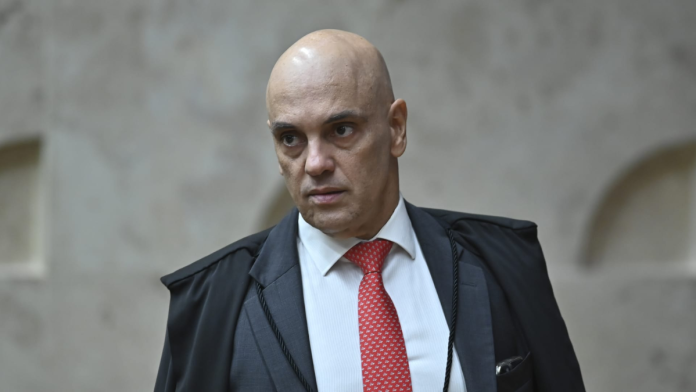A political storm has erupted between Brazil and the United States after Supreme Court Justice Alexandre de Moraes was hit with U.S. sanctions. Moraes is overseeing the trial of former president Jair Bolsonaro, who is accused of plotting to overturn the 2022 election after losing to Luiz Inácio Lula da Silva.
This week, the U.S. government sanctioned Moraes under the Global Magnitsky Act, typically used against serious human rights offenders. Former U.S. President Donald Trump, a close ally of Bolsonaro, also imposed a 50% tariff on Brazilian imports. These actions have sparked outrage in Brazil, where many believe they are aimed at protecting Bolsonaro from justice.
US Sanctions Trigger Backlash in Brazil
Trump described the prosecution of Bolsonaro as a “witch-hunt.” The former U.S. leader’s decision to impose sanctions and tariffs came after lobbying efforts from Bolsonaro’s third son, Eduardo Bolsonaro, a congressman who moved to the U.S. earlier this year. Eduardo admitted to asking U.S. officials to pressure Brazil over his father’s legal troubles. After the sanctions were announced, he celebrated on social media, saying, “I have a feeling of mission accomplished.”
Trump Targets Brazil With 50% Tariff, Sanctions Top Judge in Bolsonaro Trial
President Lula strongly condemned the U.S. actions. He said interference in Brazil’s justice system is unacceptable and warned that such acts could damage the countries’ diplomatic relationship. Brazil’s government sees the sanctions and tariffs as hostile and politically motivated.
Most Brazilians seem to agree. Recent polls show that a majority of the population disapproves of Trump’s interference in Brazil’s institutions. The move has triggered the worst diplomatic crisis between the two nations in decades, according to analysts.
Moraes Slams “Cowardly” Plot to Destabilize Brazil
In response to the sanctions, Justice Moraes delivered a powerful speech in court. Known in Brazil by the nickname “Xandão,” he called the sanctions “illegal and immoral.” He said the goal behind them was to create an economic crisis that could lead to social and political chaos — just like the failed coup attempt on January 8, 2023.
Bolsonaro’s son storms Washington — U.S. sanctions Brazilian Supreme Court judge Moraes
That day, Bolsonaro supporters stormed Brazil’s Congress, Supreme Court, and presidential palace, hoping to provoke a military intervention and reverse the election results. Moraes said the same forces were now trying to destabilize Brazil economically by encouraging foreign sanctions and trade penalties.
Although he didn’t mention Eduardo Bolsonaro by name, Moraes referred to “supposedly patriotic Brazilians” who had gone abroad and lobbied foreign governments to act against Brazil. He described this behavior as “cowardly and treacherous,” accusing them of working to trigger a crisis that could once again put democracy at risk.
🚨 Real rigged? Brazil probes insider leak tied to Trump tariffs and Bolsonaro circle
Trial Continues Despite International Pressure
Jair Bolsonaro’s trial is expected to wrap up in the coming weeks. If found guilty, he could be sentenced to up to 43 years in prison — a punishment that would likely keep the 70-year-old behind bars for life. Bolsonaro denies leading any attempt to stay in power and insists he committed no crime.
Despite growing pressure, Justice Moraes said the court would continue its work without fear. He described the attempts to intimidate Brazil’s judiciary as “ham-fisted” and said there would be no “cowardly surrender” from the country’s highest judges.
The court’s firm stance has gained support both inside and outside Brazil. Harvard political scientist Steven Levitsky said Brazil had done a better job than the U.S. in holding authoritarian figures accountable. “Brazil’s democracy is flawed. It’s got problems. It’s polarized. But it’s a real functioning democracy,” he said. “Right now, Brazil is more democratic than the United States.”
